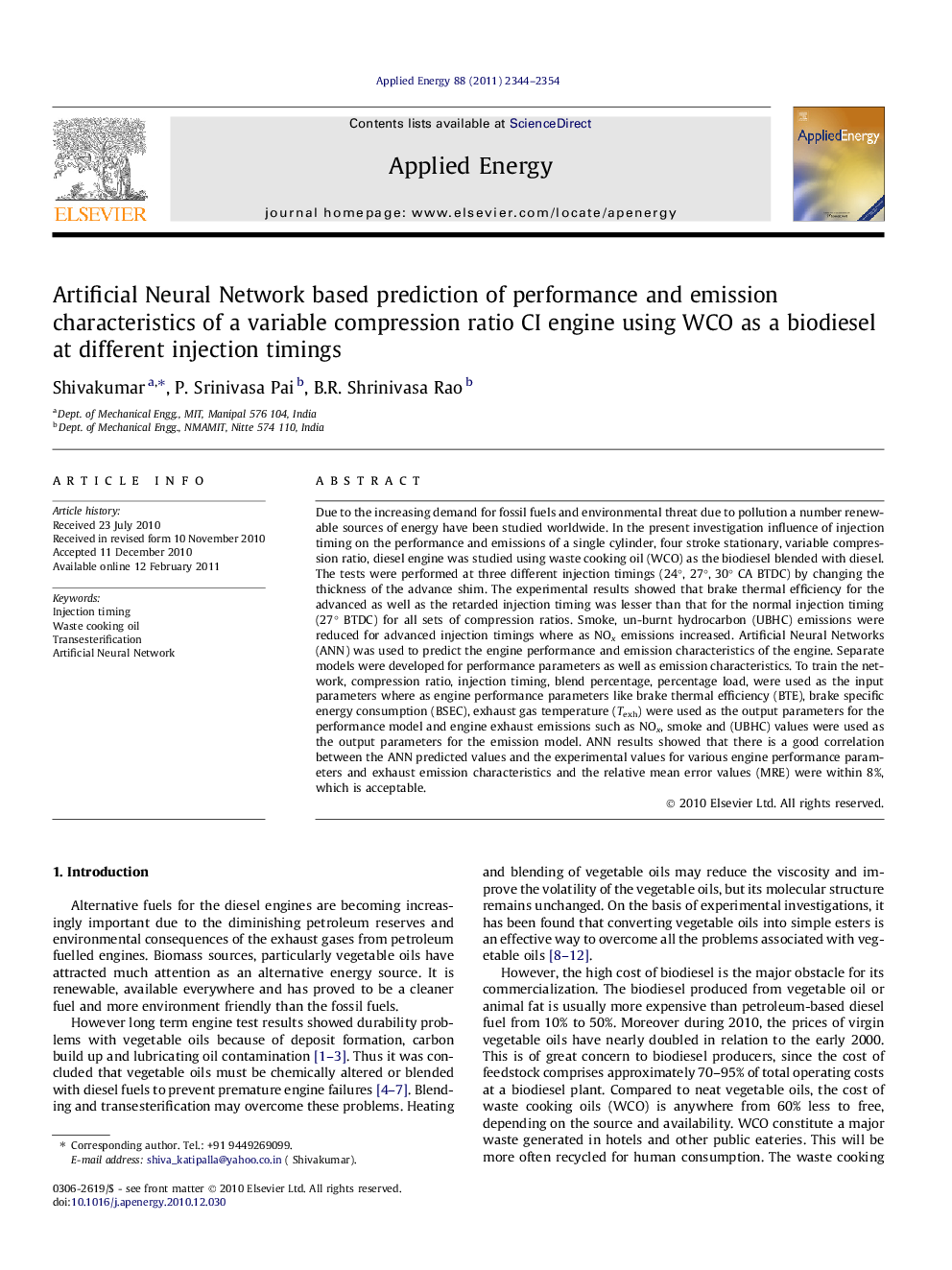| Article ID | Journal | Published Year | Pages | File Type |
|---|---|---|---|---|
| 244386 | Applied Energy | 2011 | 11 Pages |
Due to the increasing demand for fossil fuels and environmental threat due to pollution a number renewable sources of energy have been studied worldwide. In the present investigation influence of injection timing on the performance and emissions of a single cylinder, four stroke stationary, variable compression ratio, diesel engine was studied using waste cooking oil (WCO) as the biodiesel blended with diesel. The tests were performed at three different injection timings (24°, 27°, 30° CA BTDC) by changing the thickness of the advance shim. The experimental results showed that brake thermal efficiency for the advanced as well as the retarded injection timing was lesser than that for the normal injection timing (27° BTDC) for all sets of compression ratios. Smoke, un-burnt hydrocarbon (UBHC) emissions were reduced for advanced injection timings where as NOx emissions increased. Artificial Neural Networks (ANN) was used to predict the engine performance and emission characteristics of the engine. Separate models were developed for performance parameters as well as emission characteristics. To train the network, compression ratio, injection timing, blend percentage, percentage load, were used as the input parameters where as engine performance parameters like brake thermal efficiency (BTE), brake specific energy consumption (BSEC), exhaust gas temperature (Texh) were used as the output parameters for the performance model and engine exhaust emissions such as NOx, smoke and (UBHC) values were used as the output parameters for the emission model. ANN results showed that there is a good correlation between the ANN predicted values and the experimental values for various engine performance parameters and exhaust emission characteristics and the relative mean error values (MRE) were within 8%, which is acceptable.
